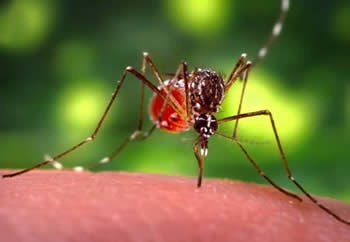Sri Lanka received certification from WHO for having eliminated lymphatic filariasis, one of the oldest and most debilitating, neglected tropical diseases. Sri Lanka and the Maldives are the first countries in the WHO South-East Asia Region to reach this public health landmark. The Minister of Health of Sri Lanka, Dr. Rajitha Senarathne was presented with the certificate of validation by the WHO Regional Director, Dr. Poonam Khetrapal Singh during a ceremony which took place in BMICH, Colombo.
“The Ministry of Health has prioritized the elimination of this neglected tropical disease for several decades. We have now reached a major turning point, eliminating lymphatic filariasis as a public health problem. This achievement reflects the strong political commitment of the Ministry of Health, the tireless work of the Anti Filariasis Campaign and the dedication of our health workers to combat this disease,” said Dr. Rajitha Senarathna, Minister of Health, Nutrition & Indigenous Medicine.
The Anti Filariasis Campaign (AFC) was established in 1947 to combat lymphatic filariasis. Sri Lanka intensified mosquito control efforts; treatment of the infected population, disability prevention and control; and strengthened surveillance in order to stop the spread of infection and alleviate the suffering caused by lymphatic filariasis. The targeted campaigns to reduce the burden of the disease brought down the transmission rate from a peak of 24% during the 1930s to 0.03 % in 2008, allowing the country to work towards elimination status. Finally, in May 2016, WHO officially announced that Sri Lanka had achieved the elimination of lymphatic filariasis.
“This is a remarkable achievement for Sri Lanka. Lymphatic filariasis is a disease that should have no place in today’s world. It is a disease that disfigures and disables. And it is a disease that stigmatizes and impoverishes. Most importantly, though, it is a disease that can be prevented and eliminated. In this regard, I congratulate Sri Lanka’s health authorities for proving their mettle, and for lifting the burden of lymphatic filariasis from vulnerable communities across the country,” stated Dr. Poonam Khetrapal Singh, Regional Director, WHO South-East Asia Region while presenting the certificate of elimination to Sri Lanka.
The country’s achievement provides strong inspiration for the seven countries in the region currently striving to eliminate this disease; Bangladesh, Myanmar, India, Indonesia, Nepal, Thailand and TimorLeste and for the ongoing battle against all neglected tropical diseases.






















